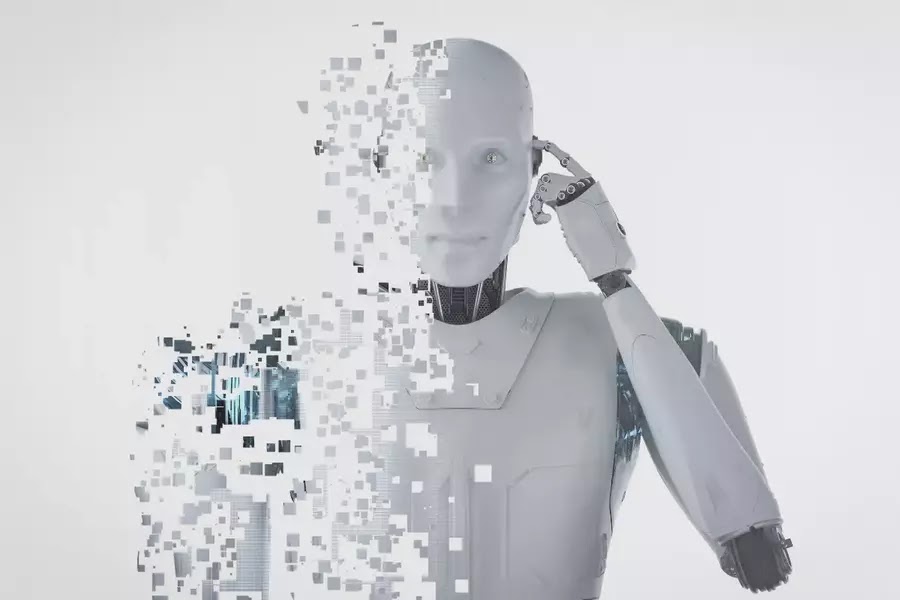Also Read
Agents in Artificial Intelligence: Artificial intelligence is widely known to be composed of three elements: hardware, software, and data. However, there is a fourth element that is often forgotten: agents. Agents are essential to the functioning of artificial intelligence and play a crucial role in its development.
Learning agents are responsible for acquiring and storing knowledge. Reasoning agents use the knowledge they have acquired to make decisions and solve problems. Acting agents are responsible for taking actions in the real world based on the decisions made by reasoning agents.
 |
| Agents in Artificial Intelligence |
Table of Contents
What are agents?
How are agents used in artificial intelligence?
What are the benefits of using agents in artificial intelligence?
What are the challenges of using agents in artificial intelligence?
Conclusion
Each type of agent has a different impact on artificial intelligence. Learning agents help artificial intelligence systems to acquire new knowledge and understand the world around them. Reasoning agents enable artificial intelligence systems to make decisions and solve problems. Acting agents allow artificial intelligence systems to take action in the real world.
The impact of agents in artificial intelligence is profound. They are essential to the functioning of artificial intelligence and play a crucial role in its development.
What are agents?
In artificial intelligence, agents are computational systems that can reason and act autonomously. They are designed to achieve specific goals and can operate in complex environments.
Rational agents: These are agents that make decisions by considering the best possible action to take, given their current situation. They are also known as "optimal" or "smart" agents.
Non-Rational agents: These are agents that make decisions based on heuristics or rules of thumb. They are also known as "sub-optimal" or "dumb" agents.
Rational agents are often used in applications where it is crucial to make optimal decisions, such as in robotics, financial trading, and military planning. Non-rational agents are used in applications where speed is more important than accuracy, such as in the video.
How are agents used in artificial intelligence?
Agent-based artificial intelligence is a growing field within AI that seeks to create intelligent systems by modeling them after agents. Agents are autonomous entities that can act on their own behalf. They can make decisions, take action, and interact with their environment.
AI systems are designed to be composed of many agents that work together to solve problems or accomplish tasks. This bottom-up approach to AI contrasts with the more traditional top-down approach, which focuses on creating centralized AI systems.
AI systems have many potential applications. They can be used for tasks like monitoring and control, planning and scheduling, and learning and adaptation.AI systems are also being explored for use in social simulations and digital assistants.
What are the benefits of using agents in artificial intelligence?
In Artificial Intelligence, agents are used to interacting with and learning from the environment. There are many benefits of using agents, including:
- They can improve performance by tasks that are difficult or impossible for humans to do.
- They can work autonomously, which means they can work without needing constant supervision.
- They can be used to simulate complex environments for testing purposes.
- They can be used to create tailored experiences for users.
Overall, agents can be employed in Artificial Intelligence to create more efficient and intelligent systems.
Challenges of using agents in artificial intelligence?
One of the key challenges of using agents in artificial intelligence is ensuring that the agents can act ethically. This can be difficult, as agents may have different ethical principles than humans. As such, it is important to carefully consider the ethical implications of any actions that agents take.
Another challenge of using agents in artificial intelligence is dealing with the fact that agents are often not as perfect as we would like them to be. They may make mistakes, or they may not be able to understand everything that we want them to. This can lead to frustrating results and may even cause harm.
Finally, it is important to remember that agents are still artificial intelligence, and as such, they are subject to the same limitations as any other form of AI. They are not perfect, and they will never be able to fully replace human decision-making.
Conclusion
After reading this article, it is evident that agents play a vital role in artificial intelligence. They help to create, maintain, and improve artificial intelligence systems. Additionally, agents contribute to the efficiency and effectiveness of these systems. In light of this, it is clear that agents are an essential part of artificial intelligence and their impact cannot be underestimated.





.png)

0 Comments